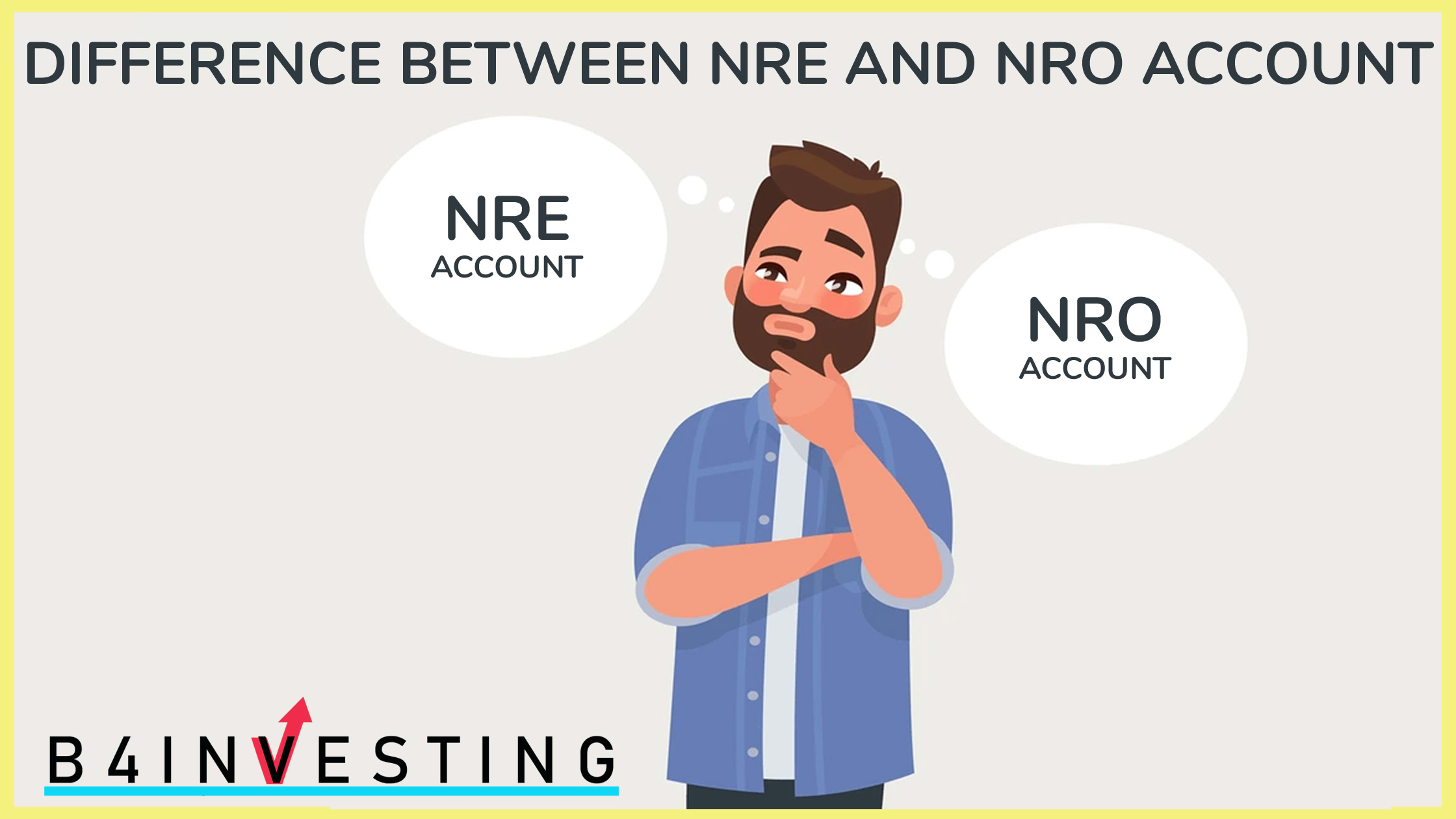
NRE and NRO accounts are two types of bank accounts. These accounts are designed for Non-Resident Indians (NRIs) to manage their finances in India.
What is NRE account?
An NRE (Non-Resident External) account is a type of bank account designed specifically for Non-Resident Indians (NRIs) to deposit and manage their foreign earnings in India. Here are the key features of an NRE account:
Key Features of NRE Account:
- Tax Benefits: Both the principal amount and the interest earned on NRE accounts are completely tax-free in India.
- Free Repatriation: You can freely repatriate both the principal amount and the interest earned to your foreign bank account without any restrictions.
- Currency: NRE accounts are denominated in Indian Rupees (INR).
- Joint Accounts: You can open a joint NRE account with another NRI or a resident Indian relative.
- Investment Options: You can invest in various financial instruments like fixed deposits, mutual funds, etc., through your NRE account.
Who Can Open an NRE Account?
- Non-Resident Indians (NRIs)
- Persons of Indian Origin (PIOs)
- Overseas Citizen of India (OCI) cardholders
Benefits of NRE Account:
- Tax-free Returns: Enjoy tax-free interest on your deposits.
- Easy Repatriation: Transfer your funds back to your home country without any hassle.
- Safe and Secure: Your funds are safe and secure in a reputable Indian bank.
- Convenient Banking: Access your account through online and mobile banking services.
In essence, an NRE account is a great way for NRIs to park their foreign earnings in India while enjoying tax benefits and easy repatriation.
What is NRO account?
An NRO (Non-Resident Ordinary) account is a type of bank account designed specifically for Non-Resident Indians (NRIs), Persons of Indian Origin (PIOs), and Overseas Citizens of India (OCIs) to manage their income earned in India.
Key Features of NRO Account:
- Income from India: This account is primarily used to deposit income earned in India, such as rent, dividends, pensions, interest, and proceeds from the sale of Indian property.
- Currency: NRO accounts can hold both Indian Rupees (INR) and foreign currency.
- Taxation: The interest earned on an NRO account is taxable in India.
- Repatriation: There are limits on the amount of funds that can be repatriated from an NRO account to a foreign country. Generally, up to USD 1 million per financial year can be repatriated.
- Investment Options: You can invest in various financial instruments like fixed deposits, mutual funds, etc., through your NRO account.
Who Can Open an NRO Account?
- Non-Resident Indians (NRIs)
- Persons of Indian Origin (PIOs)
- Overseas Citizens of India (OCIs)
Benefits of NRO Account:
- Convenient for Indian Income: It’s a convenient way to manage your Indian income in one place.
- Investment Opportunities: You can invest in various Indian financial instruments.
In essence, an NRO account is suitable for NRIs who have regular income sources in India and need a convenient way to manage and invest those funds.
Difference between NRE and NRO Account
| Feature | NRE Account (Non-Resident External) | NRO Account (Non-Resident Ordinary) |
| Purpose | To park foreign earnings in India | To manage income earned in India |
| Taxation | Interest earned is tax-free | Interest earned is taxable |
| Repatriation | Both principal and interest can be freely repatriated | Interest can be repatriated freely, principal repatriation has limits |
| Deposits | Only foreign currency deposits allowed | Both foreign and Indian currency deposits allowed |
| Joint Accounts | Can be opened with another NRI or resident Indian relative | Can be opened with another NRI or resident Indian |
Which one to choose; NRE or NRO account?
It depends on your specific financial situation and needs. Consider the following:
- Source of funds: If your funds come from foreign sources, an NRE account is more suitable. If you have income sources within India, an NRO account might be better.
- Tax implications: If you want to avoid taxes on your interest income, an NRE account is the way to go.
- Repatriation needs: If you need to repatriate funds frequently and without restrictions, an NRE account is more flexible.
Additional Considerations:
- Exchange Rate Risk: NRE accounts are more susceptible to exchange rate fluctuations as they deal with foreign currency.
- Convenience: NRO accounts might be more convenient for day-to-day transactions in India.
It’s always advisable to consult with a financial advisor or your bank to determine the best option for your individual circumstances.

